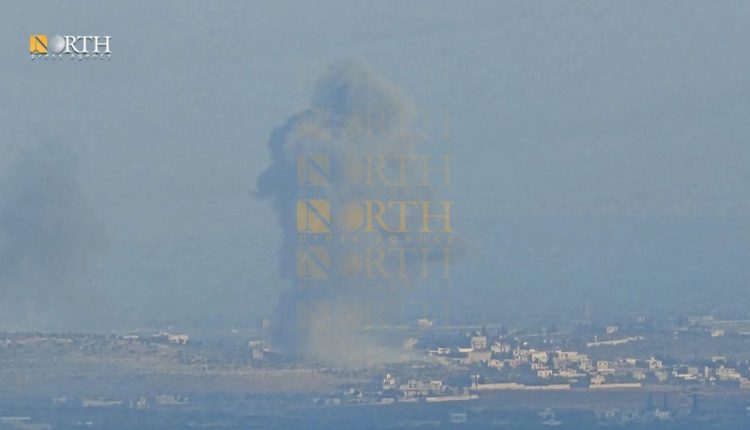Turkey Orchestrates HTS, SNA Attack in Syria to Pressure Assad – Analyst
DAMASCUS, Syria (North Press) – Syrian political analyst Ghassan Youssef suggested on Thursday that Turkey orchestrated recent attacks on Syrian government positions in Aleppo and Idlib in Northwest Syria to exert pressure on President Bashar Assad. The escalation follows Assad’s rejection of normalization talks with Turkish President Recep Tayyip Erdogan.
Youssef claimed Turkey is leveraging its influence over Hayat Tahrir al-Sham (HTS, formerly al-Nusra Front) and Turkish-backed armed opposition factions, known as the Syrian National Army (SNA), to apply political and military pressure. “Turkey is negotiating with Assad through weapons after diplomatic efforts failed,” he stated in an exclusive interview with North Press.
The analyst highlighted that Assad’s precondition for any normalization of ties—a full Turkish military withdrawal from Syrian territory—remains a major obstacle. Erdogan’s administration has reportedly escalated military actions in the region to coerce Assad into reconsidering.
Youssef also accused Turkey of using the offensive as a means to seize additional Syrian territory. He alleged that Turkey, with tacit support from Israel, is behind the broader military escalation, referencing Israeli Prime Minister Benjamin Netanyahu’s recent threats against Assad.
The attacks, launched by HTS and the SNA, have resulted in the capture of strategic villages and towns in Aleppo and Idlib. The factions claim to have advanced close to Aleppo city, a critical stronghold for the Syrian government.
Turkey’s Motives and International Dynamics
The analyst’s assertions align with a broader narrative of regional tension. Youssef emphasized that the offensive reflects Erdogan’s ongoing pursuit of influence in Syria, as Turkey seeks to establish leverage in any future political settlement of the conflict.
Meanwhile, earlier reports from Reuters quoted Turkish security sources acknowledging a “limited operation” by opposition groups in Northwest Syria. The operation was reportedly launched in response to intensified government airstrikes and artillery in the region.
Turkey’s role in supporting opposition groups in Syria has drawn criticism from Damascus, which views Ankara’s military presence as a violation of its sovereignty. Erdogan’s efforts to balance relations with regional and global powers—particularly Russia and the U.S.—further complicate the landscape.
Background
Tensions between Turkey and Syria escalated following a failed attempt at reconciliation brokered by Russia and Iran earlier this year. Assad’s insistence on Turkish troop withdrawal as a condition for normalization has stalled diplomatic efforts.
Turkey continues to maintain military outposts in Northwest Syria under agreements with Russia, ostensibly to monitor ceasefires. However, these arrangements have failed to prevent repeated outbreaks of violence, particularly in Idlib and Aleppo’s countryside.
The current escalation underscores the fragility of these agreements and raises concerns over a possible humanitarian crisis, as renewed fighting threatens to displace thousands of civilians in the affected areas.

